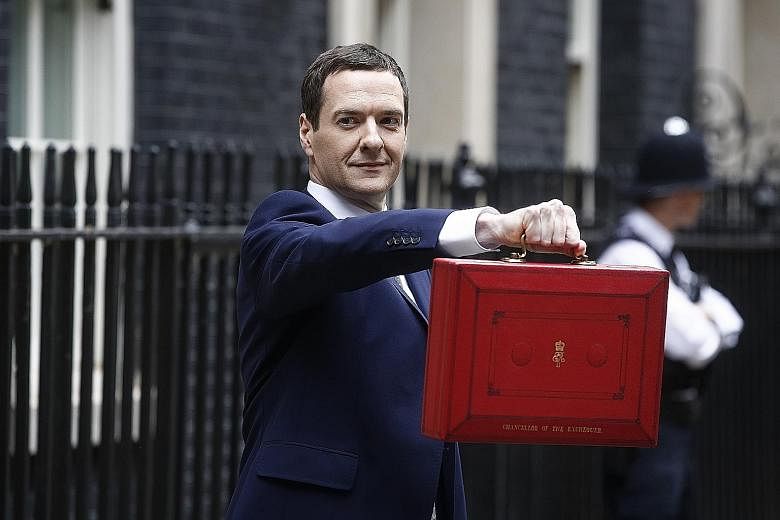LONDON • British Finance Minister George Osborne, fresh from his party's decisive election victory, pledged yesterday to recast the country's economy by chopping welfare spending, lowering the tax bill for workers and tackling low productivity.
"The British economy I report on today is fundamentally stronger than it was five years ago," Mr Osborne told lawmakers as he announced his seventh Budget since becoming Chancellor of the Exchequer in 2010. "Having come this far, there can be no turning back."
The Budget offers Mr Osborne an opportunity to boost his chances of becoming Britain's next prime minister if Mr David Cameron steps down before the next elections in 2020, as he has said he will.
"This is a Budget that can only be delivered because the British people trusted us to finish the job," he said in the House of Commons.
In the first solely Conservative Budget for nearly 20 years, Mr Osborne cited the turmoil in Greece to argue that the world's fifth-largest economy needs less spending and less borrowing.
"Britain still spends too much, borrows too much," the Chancellor said. "You only have to look at the crisis unfolding in Greece as I speak to realise that if a country's not in control of its borrowing, the borrowing takes control of the country."
Mr Osborne said that his Budget sets out "a plan for Britain for the next five years to keep moving us from a low-wage, high-tax, high-welfare economy to the higher-wage, lower-tax, lower-welfare country we intend to create".
In steps that drew cheers from Conservative lawmakers and a smile from Mr Cameron, Mr Osborne raised the amount of earnings that are exempt from income tax to £11,000 (S$23,000) from next year and the inheritance tax threshold on family homes to the £1 million mark.
He also pledged to cut corporation tax to 19 per cent in 2017 and 18 per cent by 2020 from the current 20 per cent.
Mr Osborne said the economy was forecast to grow 2.4 per cent this year, down from an earlier forecast of 2.5 per cent, and 2.3 per cent next year.
The Chancellor also announced reforms to the welfare system, including a freeze on working-age benefits for four years.
"The benefits system should not support lifestyles and rents that are not available to the taxpayers who pay for that system," he said.
Turning his focus to the wealthy, Mr Osborne said Britain will abolish the permanent non-domiciled tax status that many rich foreigners had used to reduce their UK tax bill.
He pledged to gradually reduce the bank levy rate, although he said he will introduce a new 8 per cent surcharge on bank profits.
REUTERS

